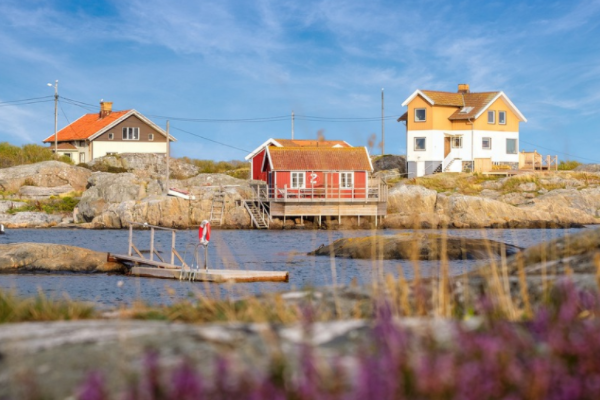
Anyone who has ever been to the beach knows that there is nothing more relaxing than walking along the shoreline.
The sound of waves crashing on the sand, the salty smell of ocean water in your nose, and a cool breeze blowing through your hair can be enough to make anyone forget their worries for a while.
But what if you could live at the beach? What if you could wake up every morning and not have to worry about packing lunches or getting out of work early so that you can get home before rush hour traffic? That dream is possible and it’s called building a small house near the beach!
This article will give you some tips on how to make that dream a reality and build a quaint house close to the beautiful, breezy beach.
1. Be Wary of the Elevation
Many people who build small houses near the beach want to put their home on stilts or just barely above sea level. You may think that this is a good idea because it would be maximizing your available yard space by putting your house closer to the water. Although it may seem like a great idea at first, you should be wary of putting your home too close to the water.
When you build near the beach, there is a possibility that high tides could flood your house. If you are in an area where tsunamis or hurricanes happen often, it would be best to put your small house much higher than sea level so when these natural disasters strike, you will still have your house.
2. Understand the Flood Zones
When you are planning to build a small house near the beach, it would be best if your house is in an area that isn’t prone to flooding. Although there are some parts of the world where most homes are built right next to the water with no problems, this could eventually lead to natural disasters like tsunamis or hurricanes. Before planning your small house, you should do some research on your geographical area so that you will know if there are any flood zones before building. Andy Mandal, an experienced South Florida Realtor who has dealt with many coastal properties, has said, “You can easily find out online about your location’s flood zones. If you’re not too sure, just ask your Realtor. He’ll be able to get you that information, no problem!”
3. Be Cautious of the Nearby Trees
Many people who are building a house try to maximize their space by planting trees on their property line. Although this may add some nice aesthetics and provide you with an abundance of shade, you should be cautious. You see, trees are usually easily destructible during natural disasters so don’t plant anything too close to your house.
When it comes to hurricane protection, you can never be too cautious. Trees, particularly newly planted trees, can easily be ripped up and cause some serious damage to your house. Many coastal properties have smaller lots than those located further inland, so trees are generally right next to your house.
4. Find a Builder Who’s Well Versed in Coastal Properties
When it comes to building your home, you want the best. You need a professional who knows what they’re doing. As such, when it comes time to choose a builder for your beautiful little beach home, you’ll want someone who has done this a time or two.
When it comes to building a beach home, there are many challenges that you will face. Hiring a professional who has built houses near the beach ensures that your house is safe and secure and features aspects that are unique to coastal living. If you hire someone who hasn’t built near the water before, they could do more damage than good.
5. Think About Your Yard
 When building a small house near the beach, it is important to keep in mind the backyard landscaping. Although you may want an open space for your pool, you also need to make sure there are some areas where your landscaping can grow.
When building a small house near the beach, it is important to keep in mind the backyard landscaping. Although you may want an open space for your pool, you also need to make sure there are some areas where your landscaping can grow.
Your yard needs to have adequate drainage so that when it rains, the water will be properly diverted and your house won’t be damaged. If you hire someone who doesn’t take the time to make sure your yard is properly landscaped, you could find yourself with a flooded yard and home.
6. Exteriors are Just as Important as Interiors
When planning a new home build, it’s easy to get caught up in lighting fixtures, appliances, flooring, and paint samples. One thing you need to put some extra consideration into is the exteriors. Coastal properties take more wear and tear than inland properties due to the salty air, harsh ocean winds, and the added moisture. You need to think about some of the features that coastal properties usually have such as stucco exteriors, metal roofs, and possibly heightened rooflines so that they can carry more water away.
Although people build houses near the beach all the time, it’s important that you do enough research before starting construction on your perfect little beach home. After all, you don’t want natural disasters destroying your dream property. With the proper research and preparation, you could create an ideal home that allows you all the added benefits of being just minutes from the sun, sand, and all the relaxation you can muster!
Become a Harlem Insider!
By submitting this form, you are consenting to receive marketing emails from: . You can revoke your consent to receive emails at any time by using the SafeUnsubscribe® link, found at the bottom of every email. Emails are serviced by Constant Contact








